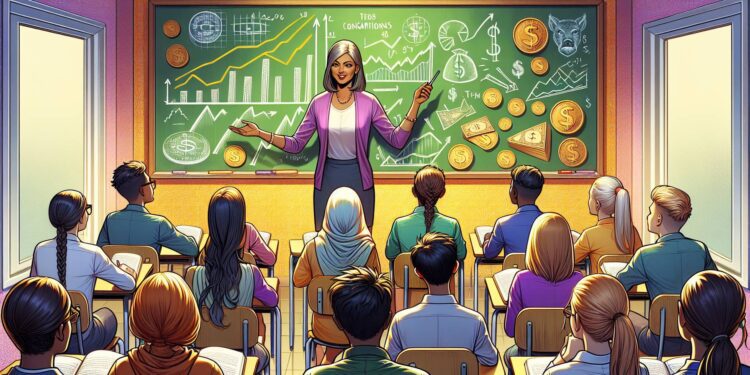High school pupils in California are set to gain knowledge about budgeting, credit ratings, and investment as part of a new requirement for graduation. Recently, Governor Gavin Newsom enacted legislation making personal finance a compulsory subject for students graduating in 2031 and later. Commencing in the academic year 2027-28, every high school will be required to provide a semester-long course in personal finance.
Students will have the option to take this course in lieu of economics, which is presently a graduation prerequisite. Assemblymember Kevin McCarty, who championed the bill, asserts that this course is designed to equip students with the financial savvy necessary for making wise monetary decisions that will serve them well into adulthood. “This is an era where young people are inundated with credit card solicitations that can lead to significant financial burdens,” he stated.
The course will include subjects like personal banking, financing education and career choices, tax comprehension, consumer protection tactics, and the fundamentals of investing and wealth accumulation. By May 31, 2026, the Instruction Quality Commission will develop a curriculum guide and resources for the course. Teachers with credentials in social studies, business, mathematics, or home economics will be permitted to instruct personal finance.
The Commission on Teacher Credentialing may also implement additional authorizations for the course.
Required financial education for learners
This bill received significant backing from the business sector, State Superintendent of Public Instruction Tony Thurmond, the Association of California School Administrators, and the youth advocacy organization GENup.
It sailed through the Legislature without any opposition. Kayvon Banankhah, a junior from Modesto, testified in favor of the legislation, stating, “Often, those students who require financial literacy the most are the ones who receive it the least.”
“Families of low-income students tend to lack financial literacy, which hinders their ability to pass that knowledge on to their kids.”
Economics educators have voiced their concerns that while they endorse personal finance education, it should not come at the expense of economics classes. They anticipate that student enrollment in economics courses may decline as a result. The California Council for Economic Education has expressed its readiness to amend the economics curriculum framework to integrate more content on personal finance.
Senator Dave Cortese pointed out that economic factors contributing to homelessness affect approximately 15,000 high school graduates each year. “Personal finance education will equip students with essential survival skills,” he mentioned. It appears as though today’s high school students need to be prepared at any moment to fend for themselves.
With several years allocated for teacher training and curriculum development, California is making a significant move towards empowering its students with vital financial competencies for their future prosperity.


